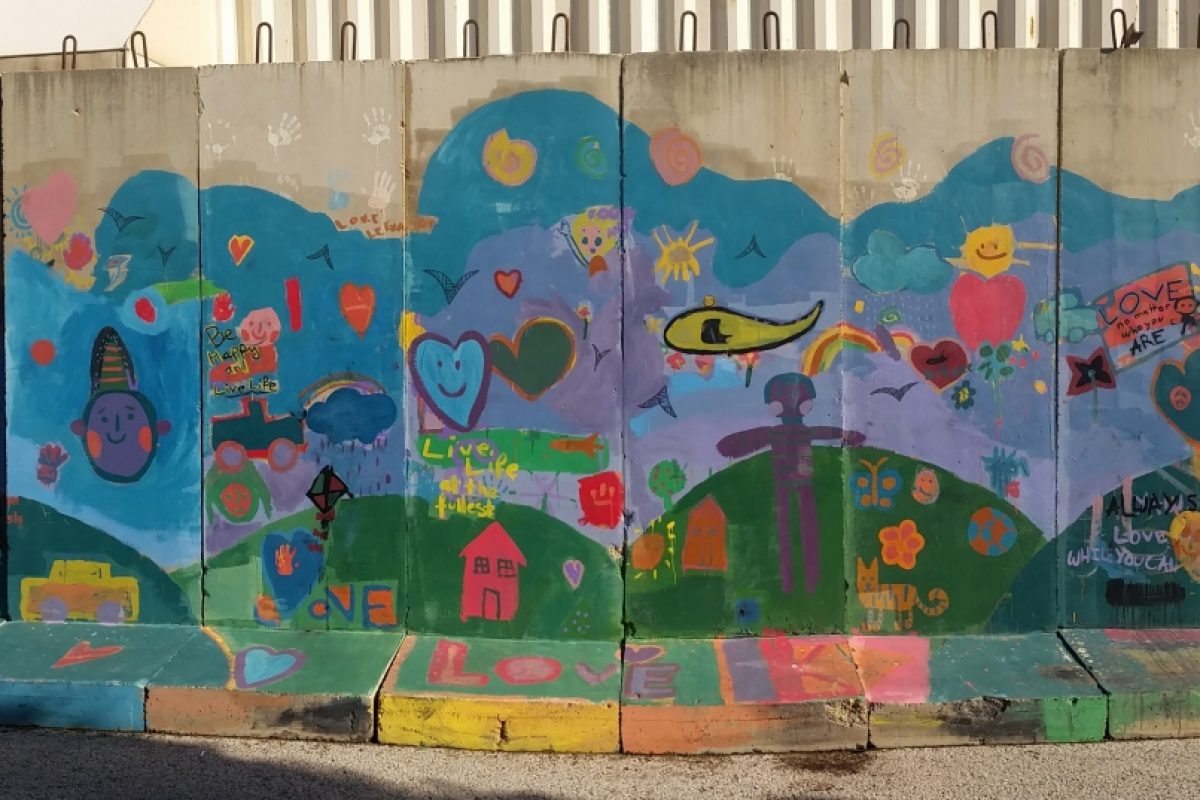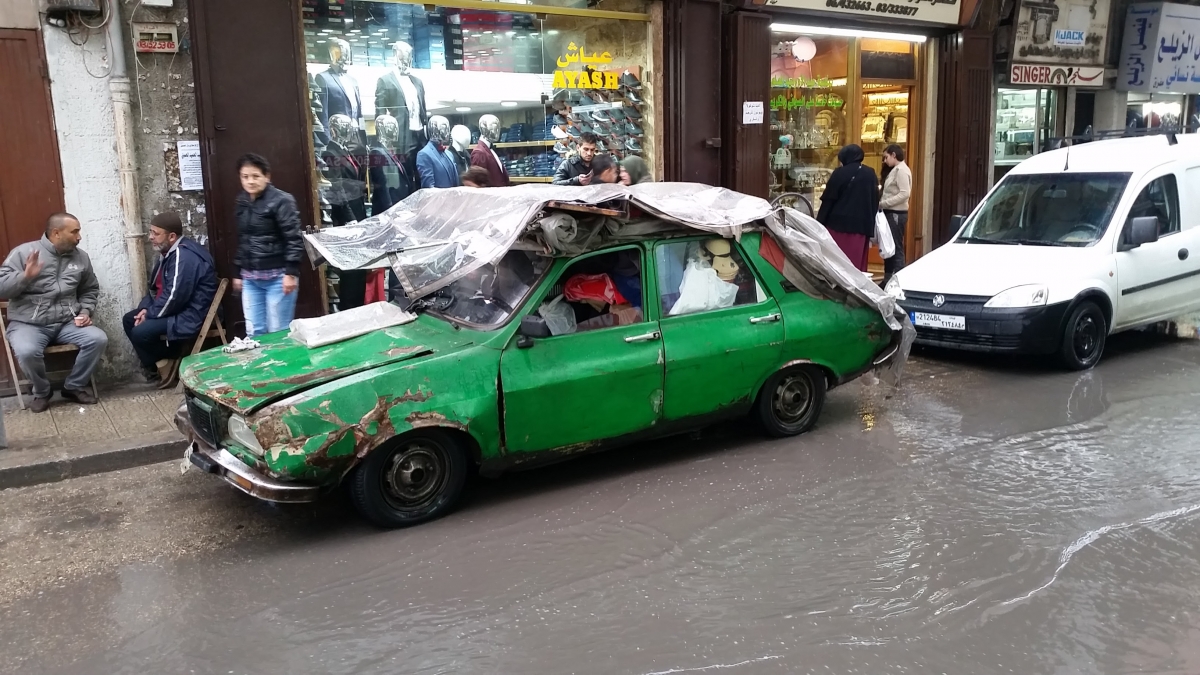“The Privilege of Playing a Positive Role” – Resettling Syrian Refugees from Lebanon

What is it like to work with people who have been forced to flee their homes to escape violence and need to be resettled to a third country? Bianka Atlas, a lawyer and humanitarian expert from New Zealand, shares her experience in Lebanon.
Not so long ago, I finished a nine-month stint as an expert on refugee resettlement with the UN Refugee Agency (UNHCR) in Beirut, Lebanon.
The conflict in Syria is widely recognized as one of the worst humanitarian crises of our time. Over 5.6 million people have fled the country since 2011 and a further 6.1 million people are internally displaced.
This crisis has placed a considerable burden on neighboring countries, including Lebanon – which, with only 10,452 km2 (a quarter of Switzerland’s size), hosts a population of six million, one in six of them being a Syrian refugee.
However, the crisis is ultimately about people, not numbers. Amid statistics and quotas, as a humanitarian professional working with refugees who were candidates for resettlement, I was reminded every day that every and each one of them has their own story.
One of the most harrowing stories I encountered involved a 27-year-old Syrian woman who was cooking in her kitchen in rural Aleppo when a barrel bomb exploded next to her house. She sustained severe burns to most of her body, disfigurement of her face and could no longer use her hands.
There were also many large families with vulnerable children, many of whom were working instead of attending school as they had to help support their families. Some of them were living with disabilities and mental health issues as a result of what they had experienced in Syria.
I was recruited by the International Catholic Migration Commission (ICMC) to provide technical expertise on resettlement to the UN Refugee Agency. Through its Resettlement Deployment Scheme, ICMC plays a vital role in increasing the number of refugee referrals for resettlement worldwide.
Through resettlement, refugees are transferred from a state in which they initially sought protection to a third state that has agreed to admit them on a permanent basis, usually after a stringent screening process. Resettlement is therefore an important protection tool for refugees and a form of international responsibility-sharing among states.
Initially, I was responsible for interviewing refugees and assessing their eligibility for resettlement to a third country. Several weeks into my deployment, I was promoted to Reviewer (similar to a Technical Advisor role). In this role, I was primarily responsible for undertaking quality checks on submissions prepared by other colleagues and deciding to which resettlement countries the cases would be referred.
In Lebanon, the UN Refugee Agency works mostly with Syrian refugees, with smaller numbers of Iraqis, Eritreans, Ethiopians, Sudanese and Somalis. The Lebanon operation processes a high volume of cases: 24,500 individuals (23,500 Syrians and 1,000 non-Syrians) who were resettled in 2016 to around 20 countries, including New Zealand. This, however, is just a drop in the bucket, since there are some 68.5 million people forcibly displaced worldwide.
Pending resettlement, the UN Refugee Agency focuses on preserving a dignified protection space for Syrian refugees in Lebanon – not only providing asylum but also access to employment, health care, education and training. Enabling access to such services and opportunities is critical for encouraging self-reliance to ensure that refugees can contribute in the resettlement country or, if they return to Syria, to assist in rebuilding their country.
A country of contrasts and diversity
Outside of work, it took me several months to find my groove in Beirut and establish a routine. It’s an intense city with woeful traffic, chronic garbage and pollution issues and a serious lack of green spaces. My daily escapes included swimming and yoga and I volunteered every Saturday at a dog shelter (Beirut for the Ethical Treatment of Animals), which is home to over 600 dogs.

I had some great adventures outside of Beirut, including a visit to the ski resort area of Chouf ― for confirmation that it does snow in the Middle East. I also visited archaeological sites and the World Heritage site “Cedars of God,” one of the last vestiges of Mount Lebanon’s cedar tree forests of ancient times.
One of my lasting impressions of Lebanon is that it is a country of contrasts and diversity; it was common to see churches alongside mosques and to hear Lebanese people speaking Arabic, English and French in the same sentence.
My time in Lebanon was a rewarding experience, both personally and professionally. I developed expertise in interviewing refugees and reviewing their cases, gained insight into the workings of a UN agency and now understand resettlement from a different perspective.
The experience of living in Lebanon was often challenging, but gave me invaluable insight into feeling like “the other.” It also led to friendships with people from every corner of the globe and afforded me the opportunity to live in a region with a rich history and culture, complex political dynamics and pressing human rights issues.
At times, the effects of the Syrian conflict can seem overwhelming. I feel privileged to have had the opportunity to play a small, positive part in finding solutions for people affected by the crisis. Since returning to New Zealand, I have been able to share my experiences and insights to increase awareness and understanding of international resettlement work.